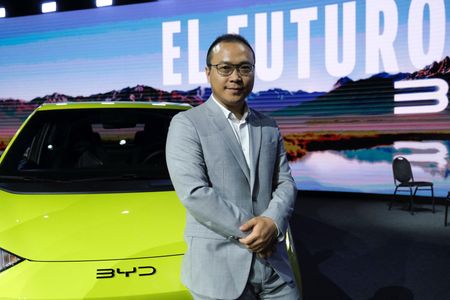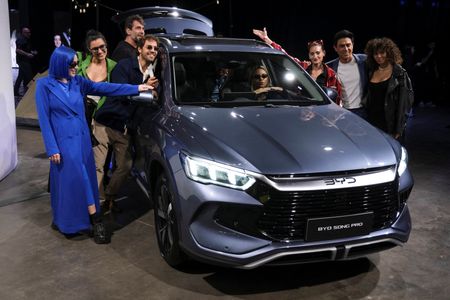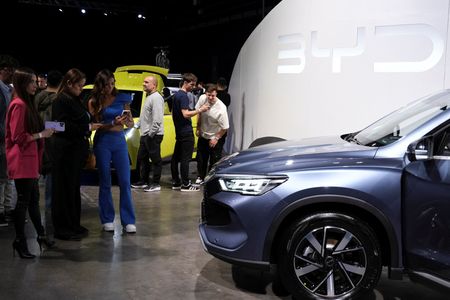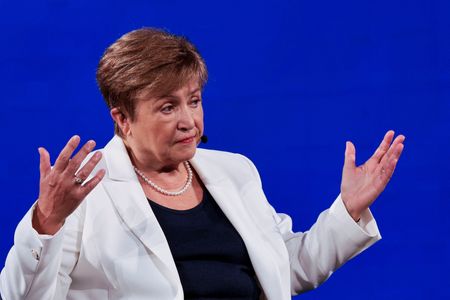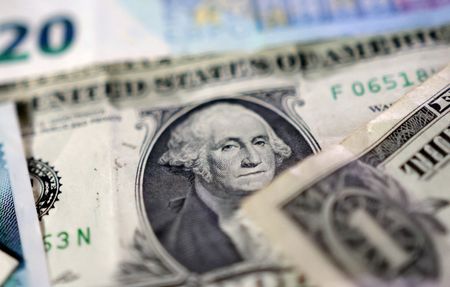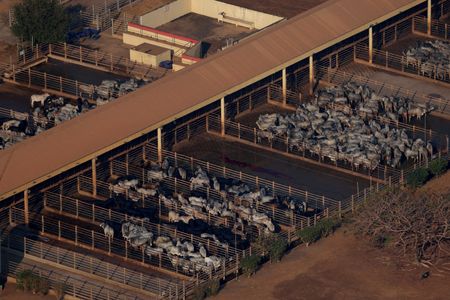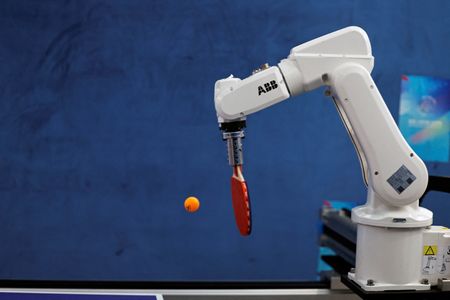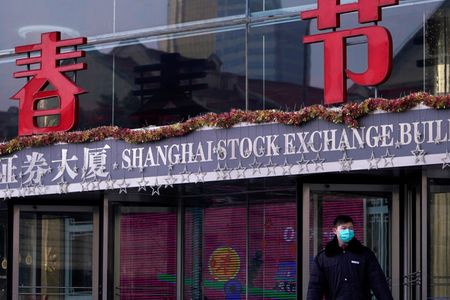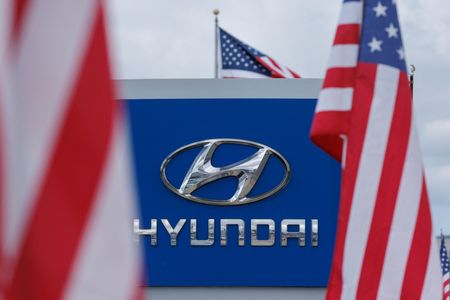By Leila Miller and Lucinda Elliott
BUENOS AIRES (Reuters) -China’s largest carmaker BYD on Wednesday launched sales of its EVs in Argentina, taking advantage of the lifting of import tariffs for electric and hybrid vehicles and boosting its fast-growing footprint in South America.
The models for sale are the electric Yuan Pro SUV, Song Pro plug-in hybrid SUV, and the electric Dolphin Mini. They all have a price of under $16,000 at origin before taxes and fees to take advantage of a new measure by Argentina’s government to allow up to 50,000 electric and hybrid vehicles without tariffs in 2026.
Chinese brands dominate this sector, and Argentina has said it expects imports of about 40,000 electric and hybrid vehicles to enter the country by the end of January.
Normally, imported cars from brands that do not have manufacturing operations in Argentina or other members of South America’s trade bloc Mercosur, which includes Brazil, pay a 35% tariff.
Stephen Deng, the country manager for BYD in Argentina, said that BYD can currently import about 7,800 electric and hybrid cars under an allocation it was given by Argentina.
“We see great potential in the long term for Argentina to develop electromobility,” Deng told Reuters at a launch event on Wednesday, calling the new policy a “tremendous opportunity.”
Local dealers say the tariff scheme will likely benefit lower-cost Chinese carmakers such as BYD, which is expanding across South America.
“We will see a rebound, demand will finally take off in Argentina,” said Felipe Munoz, a global automotive analyst at JATO Dynamics based in Italy, referring to local EV sales.
Argentina has the second-largest car market in South America, after Brazil, but it also has the region’s smallest penetration of electric vehicles.
From January through August 2025, only 486 electric cars out of a total of 421,000 were sold in Argentina, according to Munoz. For years, importers faced unfavorable exchange rates to import electric vehicles, forcing many consumers to buy combustion-engine cars manufactured locally.
Argentina’s overall car market as measured in new vehicles registered, jumped 60.4% in the first nine months of the year compared with a year prior, buoyed by tariff reductions and improved credit lines, industry data from September show.
“Amid all these ups and downs, we’ve continued selling vehicles at a more than acceptable pace,” Sebastian Beato, president of Argentina’s Association of Automotive Dealers (ACARA), told local media in October, citing currency swings and political turbulence.
In Brazil, where BYD has a new factory, the manufacturer’s growth has faced pushback from industry and labor groups who say that a large influx of cars will hurt domestic auto production and jobs.
While BYD has grown globally at a dizzying pace, it also faces challenges amid competition from rivals including Geely Auto and Leapmotor. Its quarterly car sales fell for the first time since 2020, according to data from a company filing released this month.
(Reporting by Leila Miller in Buenos Aires and Lucinda Elliott in Montevideo; Editing by Christian Plumb and Matthew Lewis)

